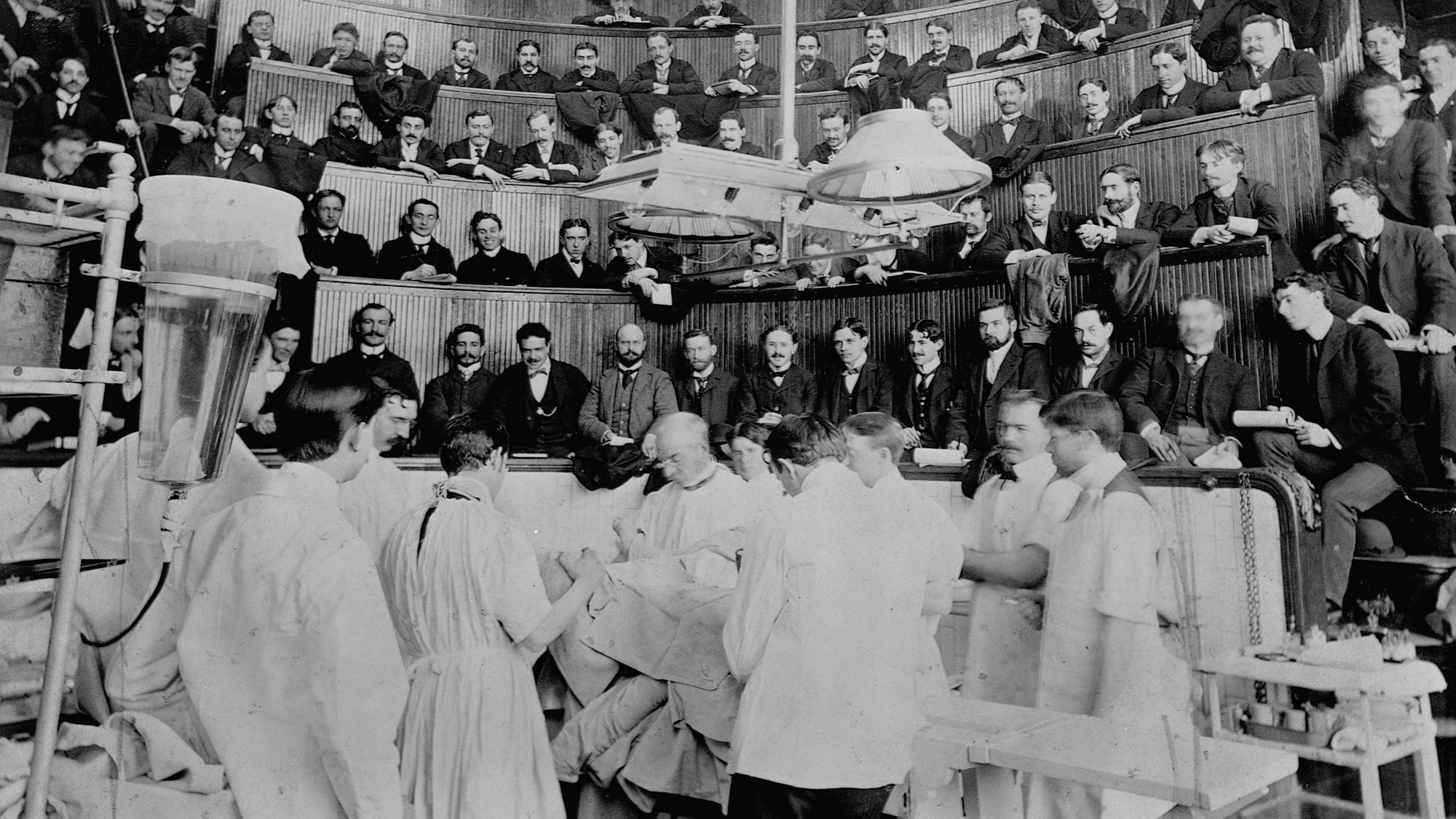

Set aside all the demanding years of medical school and residency—the grueling shifts, endless exams, and mountains of debt—to be a surgeon requires unique personality traits. Chief among them is “extraversion,” according to a 2022 report published in The Surgeon, a medical journal.
Extraverts thrive on an audience, which could explain why early surgeries—especially the pre-anesthesia, pre-germ theory variety—were sometimes performed in amphitheaters. In such theatrical settings, surgeons took center stage, operating swiftly and with great flourish, coolly narrating for their engrossed audiences, while patients writhed and screamed in pain.
By the late 19th century, the development of anesthesia significantly reduced the drama. When the germ theory of disease—a concept Popular Science reviewed in September 1883—finally gained acceptance, the folly of performing surgeries in germ-infested public settings sealed the fate of surgery as a performing art.
Or did it?
Today, enterprising surgeons employ state-of-the-art recording equipment, and aspiring surgeons still learn by watching surgery videos. Moreover, the inherent drama of surgical procedures continues to draw audiences, as evidenced by the many popular medical series like Surgeons: At the Edge of Life, Nip Tuck, and ER.
Don’t take my word for it–check out a few extraverted surgeons throughout the ages, including scenes from Popular Science.
1875

The year, 1875. The place, Jefferson Medical College’s surgical amphitheater in Philadelphia. The lead actor: Dr. Samuel Gross, renowned 19th century surgeon. In this masterpiece, artist Thomas Eakins memorialized the performing art of surgery.
1890

Even though the technology used to capture surgical performances had been upgraded from portraiture to daguerreotype, in 1890, surgeons continued to perform before public audiences without taking prudent antiseptic measures. This photo taken by Augustine H. Folsom depicts an operation underway at Boston City Hospital.
1906

Surgeons were still performing before public audiences in 1906, and still eschewing asepsis. A painting by Franz Skarbina, shows chief surgeon Ernst von Bergmann operating on a patient at a surgery theater in Berlin.
1933

By 1933, operating rooms had become sterile rooms, surgeons wore scrubs, and audience members were kept behind glass walls to prevent germ exposure. But…

1938

Even as operating room design continued to improve, minimizing germ exposure and maximizing access to surgical technology, the commitment to theater remained. This 1938 design for an operating room in a hospital in Lille, France includes bird’s-eye balcony seats for the surgeon’s audience.
1947

By 1947, operating theater had become operating TV. What had once been performed for a live audience was now performed for a much larger TV-viewing audience. From there it was a straight line through Hollywood to today’s popular medical series. Filming surgeries offers more than just dramatic entertainment, though; medical students benefit from watching surgeons in action.
2022

Surgeon theater fell largely out of favor over the years. But if watching surgeons perform is your thing, or if you’re a doctor and need to collaborate on a surgery, stay tuned for augmented and virtual reality operating theater coming to a VR headset near you, where the audience appears as avatars and the patient a hologram.
